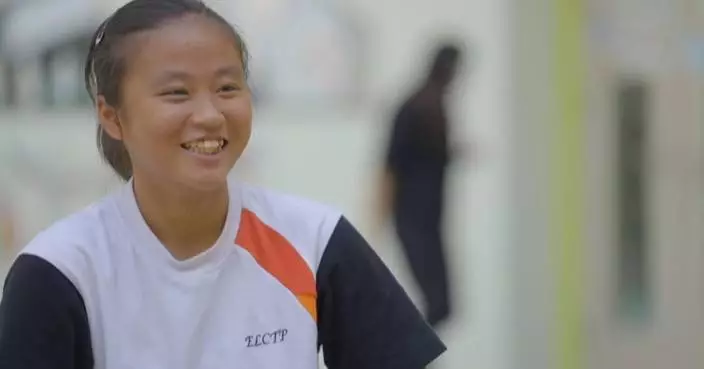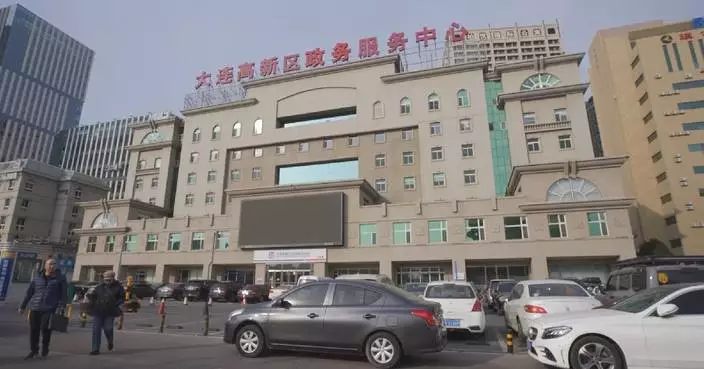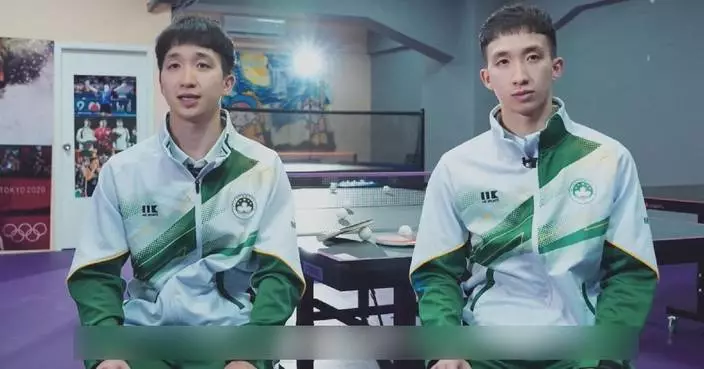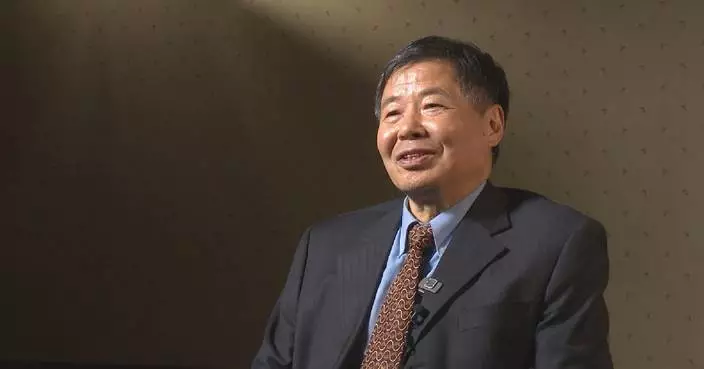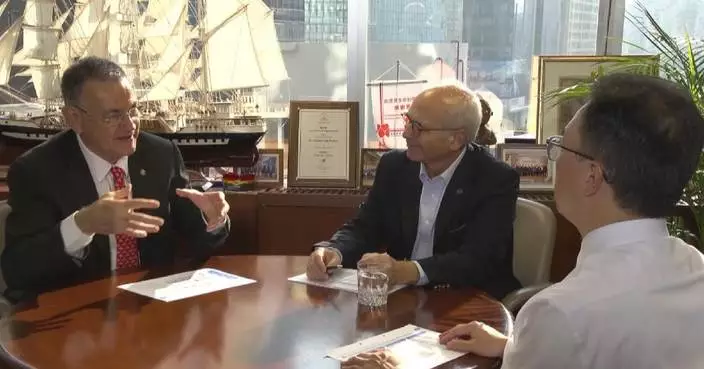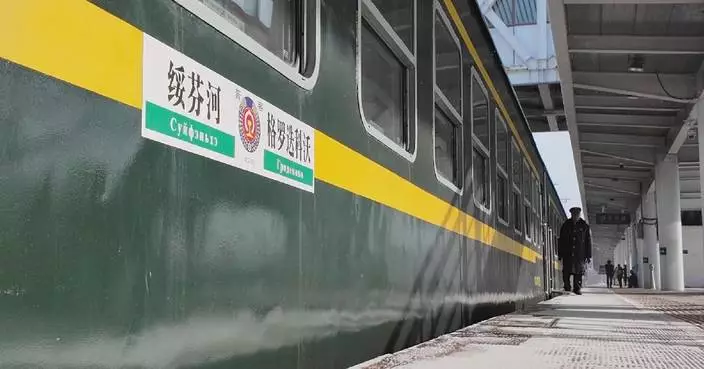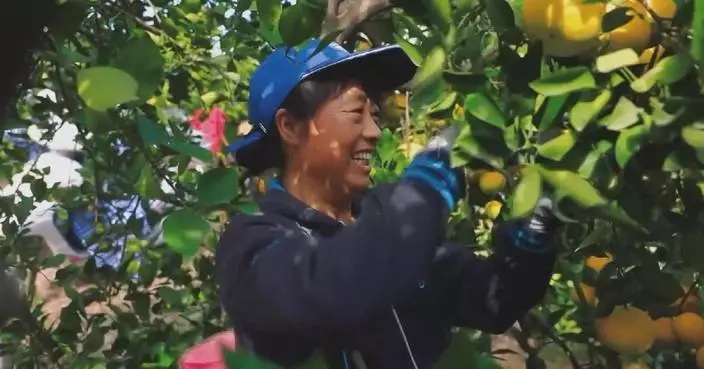With burgeoning development of Macao, four iconic cross-sea bridges connecting the Macao Peninsula and Taipa island have borne testaments to the region's seismic changes.
The latest episode of China Media Goup (CMG)'s documentary "25 Years of Lotus Bond" highlights how these bridges have significantly contributed to Macao's economic prosperity and improved the quality of life for its residents.
The journey began in 1974 with the Governor Nobre de Carvalho Bridge. This was the first bridge to connect the peninsula and Taipa Island, equipped with dual two-lane roads and ample clearance for large vessels below. Its inauguration marked the end of an era defined by ferry rides, laying a vital transportation foundation for Macao's burgeoning economy.
Zhong Shan, a marathon enthusiast and veteran of the construction industry, relishes the changing scenery as he runs through Macao.
"I start from the peninsula, cross the Governor Nobre de Carvalho Bridge and then take the walking path across from Ocean Garden. After that, I would run south to Coloane and back from there to the building we are right now. That gives me a half marathon. The views from the bridge are so good that I often forget I'm tired," Zhong shared.
As Taipa and Coloane thrived, the original bridge often faced gridlock. In a bid to ease congestion, the Ponte de Amizade, also called the Bridge of Friendship, emerged from the drawing board, completed in 1994 after four years of construction. Spanning more than 4,000 meters, it became another lifeline for the region.
The Sai Van Bridge, completed in 2004, took connectivity to new heights with its innovative double-decker design, further weaving together the fabric of Macao's transportation network.
Fast forward to Sept 29, 2024, excitement rippled through the streets as residents gathered to celebrate the imminent opening of the Macao Bridge. This impressive structure, the first dual eight-lane crossing in the region, promises to seamlessly integrate the transport system in the region.
"Thanks to the care of our motherland, life in Macao has become more desirable, and transit is becoming more accessible," said a local resident.
"As a Macao resident, we deeply appreciate the nation's unwavering support for our economic growth and improved living standards," said another resident.
Two days later, on National Day, the Macao Bridge officially welcomed its first batch of vehicles.
The sight of these four bridges, spanning the waters like a vivid rainbow, stands as a testament to Macao's remarkable journey.
The story of Macao's cross-sea bridges was featured in the third episode of the CMG documentary aired on Sunday. The series premiered on CCTV-1 at 20:00 Friday and will run until Dec 17, with subsequent broadcasts on CCTV-4 and CCTV-13.
The documentary comprises five thematic episodes: Love for the Home and the Nation, A Path of Diversity, The Flavor of Happiness, A City of Integration, and Gateway to the Future. It highlights the successful practices of "one country, two systems" in Macao under the strategic guidance of the central government.
The Chinese government resumed sovereignty over Macao and established the Macao Special Administrative Region (SAR) on December 20, 1999.
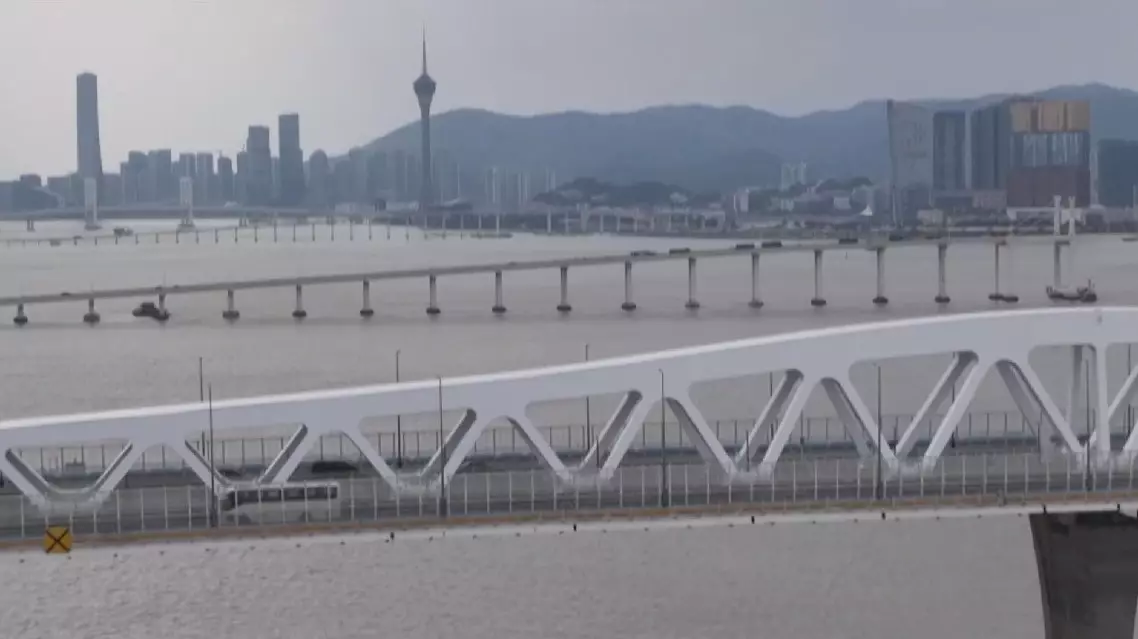
Iconic cross-sea bridges bear testimony to seismic changes in Macao
A Seoul-based expert on Saturday criticized Yoon Suk-yeol's foreign policy as president, while hoping for a quick impeachment process so that South Korea could reinstate diplomatic relationship with major countries.
South Korea's Constitutional Court started a process Saturday to deliberate a parliamentary decision to impeach President Yoon Suk-yeol over his botched martial law declaration, Yonhap news agency reported.
Yoon's impeachment resolution was submitted to the Constitutional Court at Saturday 18:15 local time by Jung Chung-rae, chair of the National Assembly's Legislative and Judiciary Committee, the report said.
Yoon was officially suspended from his duties at 19:24 local time, the moment the impeachment resolution was delivered to his office, Yonhap said in another report.
Prime Minister Han Duck-soo will serve as the acting president until the Constitutional Court delivers its ruling.
The court now has 180 days to decide whether to approve the parliament's decision, a development that can trigger an early snap presidential election.
Moon Hyung-bae, the acting chief of the Constitutional Court, said he will convene a meeting of judges at 10:00 local time Monday, vowing to conduct a "swift and fair" trial.
"If the Constitutional Court does make the decision based on legal argument, rather than political sort of consideration, I would say in the final analysis, the democracy in South Korea is working. Having said that, I don't think the problem in South Korea is a problem of democracy, rather, as I said, is democracy, democratic means or institutions, how they are being used for good, or for political or personal interests of these politicians," said Rong Ying, a senior research fellow at the China Institute of International Studies and Chair Professor at Sichuan University, on Saturday on The Point with Liu Xin, a main current affairs program of China Global Television Network (CGTN).
"When you hear testimony that somebody was ordered to drag the legislators out of the parliament so that they could not vote, that would be very persuasive evidence that this was not simply a president acting on behalf of the best interests of the country," said Einar Tangen, a senior fellow at the Taihe Institute and Chairman of Asia Narratives, an online platform for Asian perspectives.
The impeachment motion on Dec. 4 concluded on Yoon's foreign policy, saying "Yoon has neglected geopolitical balance, antagonizing DPRK, China, and Russia, adhering to a bizarre Japan-centered foreign policy, and appointing pro-Japan individuals to key government positions, thereby causing isolation in Northeast Asia and triggering a crisis of war, abandoning his duty to protect national security and the people."
Seoul-based Haesun Kim, chair of Suntrans Global Asia, a consulting firm, also an expert advisor of Kangnam Labor Law Firm, criticized Yoon's foreign policy on the program.
"It's OK if we have a good diplomatic relationship with Japan, but neglecting other countries like China or Russia? Because we need diversified diplomatic relationship with other countries," said Kim.
"When the impeachment is accepted by the Constitutional Court, as soon as they decide and pass the decision, then we can have the election within 60 days to elect a new president. But as you know that, Trump will gain the (U.S.) government, and we need to deal with this new leader globally. We have to be very prepared, because all the other countries are preparing for the next government. We hope that this impeachment process can be settled very quickly and we have a new president, so that we can reinstate the diplomatic relationship with all these global leaders," said Kim.
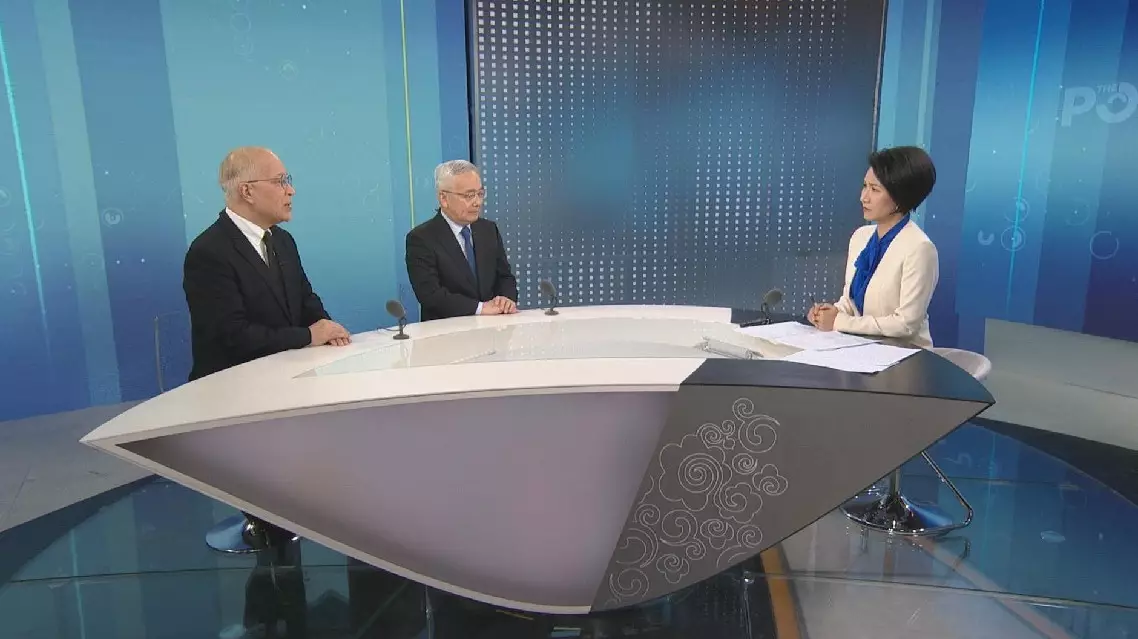
Seoul-based expert criticizes Yoon Suk-yeol's foreign policy for neglecting geopolitical balance




